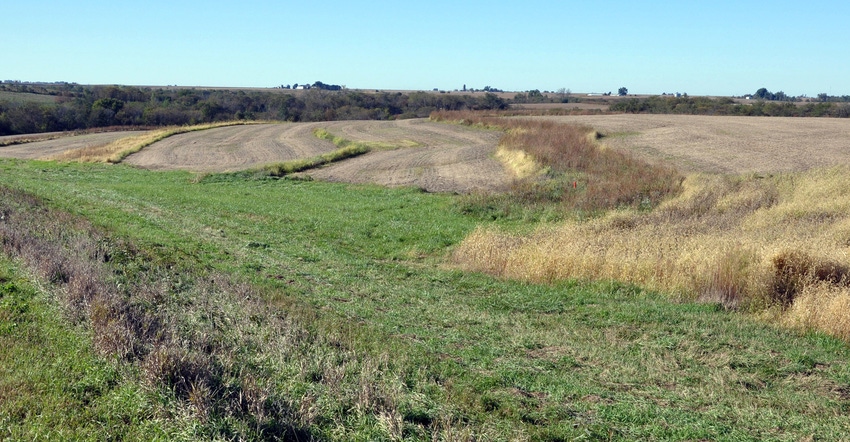February 15, 2019

The Iowa Department of Agriculture and Land Stewardship is extending three demonstration projects focused on ways to encourage adoption of water quality conservation practices. Initially funded in 2015, the projects are being extended for three years to accelerate practices in support of the Iowa Nutrient Reduction Strategy.
“By extending these projects, we can build on their strong foundations and early successes,” says Iowa Secretary of Agriculture Mike Naig. “These projects are great examples of innovative approaches to engage farmers and encourage the adoption of water quality-focused practices. We look forward to adding new partners to these projects and continuing to work with local farmers and agribusinesses to make measurable progress toward our water quality goals.”
3 conservation projects
The projects receiving extensions are:
• Taylor County Water Quality Initiative. This project works with farmers in Taylor County by promoting alternative land management practices on farmed areas identified to be marginal or potentially unprofitable. The project works with farmers to evaluate the specific production levels and goals within their farming operation. It uses several tools to evaluate current farm-scale profitability combined with conservation practice and land-use alternatives.
Rather than focus on the entire field, this project demonstrates which areas of a field should be considered for alternative forms of production, thus making them more profitable and more sustainable.
This project has already engaged 85 participants in the first two years, and 60 of those farmers have implemented conservation management changes on their fields. More than 30 additional farmers are on a waiting list to participate in the project.
• Iowa Seed Corn Cover Crops Initiative. This project is led by the Iowa Seed Association, with the goal of increasing cover crop adoption on seed corn production acres in Iowa. The seed corn focus on cover crops is heavily driven by the industry. Industry helps promote and support the use of cover crops as a valuable practice for reducing nutrient losses, along with other potential production benefits, by addressing soil compaction, weed pressures and the lack of crop residue.
As a result of this project, cover crops following seed corn has grown to an estimated 35% of seed corn acres in Iowa. Some seed companies estimate that more than 50% of their grower acres are currently enrolled as compared with around 5% to 10% before the project.
• Central Iowa Watershed Management Authority WQI Project. This project engages three local Watershed Management Authorities on collaborative water quality improvement efforts in urban and rural areas. The primary nutrient reduction practices targeted for implementation include cover crops, bioreactors, saturated buffers and wetlands. The project emphasizes education and outreach, and targets conservation practice implementation based on watershed management plans developed for each WMA.
This project has installed five wetlands, five saturated buffers and two bioreactors in its first few years. It has also seeded more than three times the original goal of cover crops in the project by using federal and private funds to match with Water Quality Initiative program dollars.
Extra funding builds on early successes
These projects will receive over $2 million in additional funding through the Iowa Water Quality Initiative over the next three years. In addition to the state funds, these projects will generate an estimated $5 million in matching funds and other in-kind contributions to support water quality improvement efforts.
Additional details about these and all other demonstration projects that are part of the Iowa Water Quality Initiative is at cleanwateriowa.org.
Source: IDALS, which is responsible for the information provided and is wholly owned by the source. Informa Business Media and its subsidiaries aren’t responsible for any of the content contained in this information asset.
You May Also Like




